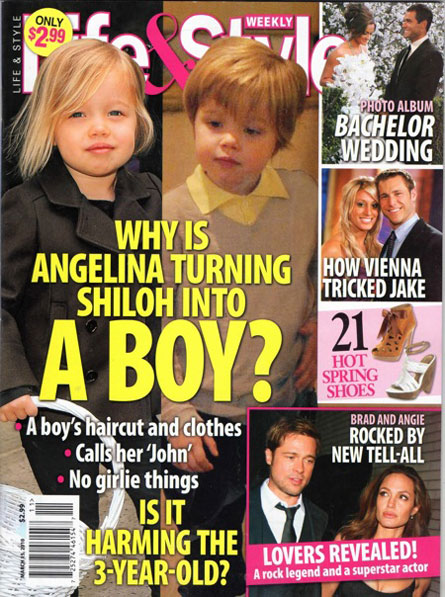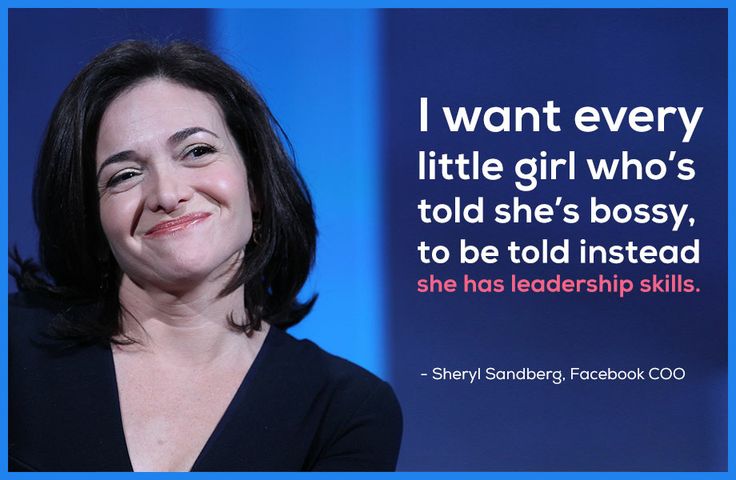It’s been more than a couple of years now but I have seared into my memory how Angelina Jolie and Brad Pitt –media icons for all humanitarian causes – got heavily bashed because they decide to allow their daughter Shiloh to dress however she wanted. And she wanted to dress in puffy jackets, tough boots and hip-hop knit hats.
The media portrayed this simple and personal decision as an almost deliberate effort of Brangelina to reshape Shiloh’s gender, asking absurd questions like “Do Brad & Angelina want to turn Shiloh into a Boy?”
So what if a girl doesn’t want to wear dresses? And what if the parents allow her to go beyond what the media has dictated to be gender-appropriate for girls? Who gave media the power to dictate over us? Sadly, WE did.
Comments that portray images of what is acceptable and how things should be are far more pervasive than we realise in a first glance. Cartoons of brave princes and beautiful princesses, TV shows with girls in sparkly pink costumes and boys in stiffly blue outfits, adverts constantly portraying girls indoor, playing with clothes, make-up and dolls with the contrasting images of boys playing outdoor, sport and rough: they all perpetrate gender stereotypes and force-feed these notions to us and to our children.
Many people confound gender stereotypes with gender roles, which are another notion altogether. While there are behaviours inherent to women and to men (gender roles), gender stereotypes are the generalization of attitudes that are a consequence of those behaviours, disregarding individual situations or preferences. For example, women can be mothers, which is a role we can fulfil, but men cannot. Mothers are then generalized into an image of tenderness and protection. Men, on the other hand, due to their original –and by original, I mean prehistoric – role, have the stereotype of the strong provider. What happens when individuals fail to meet the stereotypes that have originated from biological /historical /cultural gender roles?
An increasing number of studies from the field of psychology (see for instance Sharon Begley, 2000) provide evidence that stereotypes especially harm the people who fall into the stereotyped groups. In the case of Shiloh, girls should wear dresses and pink, “girly” clothes, not “boyish” clothes. Now think of how this can affect a little girl who feels comfortable wearing trousers and boots instead of dresses. Shiloh might be defended by her parents from all of the absurd attacks sensationalised by the media, but what do we do about the message that is being hammered into other girls’ minds? Girls who dress like boys are ridiculed, that’s what they will fear. In my research all girls had long hair without exception but most of them would complaint about the annoyance of long knotty hair: “so why don’t you cut them short then?” I finally dared to ask during a group session. Their answer was emblematic of what 99.9% of young modern girls would argue: “No way, then everybody would tease you to death, “YOU ARE BOY!”
That’s how their young lives have been co-opted to follow rules that make no sense.
But the issue would be a lot less damaging if it was only a question of style and fashion! Sadly it is not. It goes well beyond that. It affects what girls think they can do, say, think, act, fear, dream, love and hate! It affects their choice of extra-curricular activities and the professions they may pursue in life. And it goes without saying that the myth of masculinity perpetuates a similar set of absurd limitations on our boys.
The commercialised culture we live in provides a relentless reinforcement of gender stereotypes through an ever-widening array of media, until certain assumptions surrounding gender become utterly ingrained in children and adults’ mind. We’re hardly allowed to forget how society expects us to be: the pressure is constantly on.
The Council of Europe’s CDEG (the Steering Committee for Equality between Women and Men) has recently spoken very clearly about the negative consequences of G.S. and the need to end it:
“Gender Stereotyping is preconceived ideas whereby males and females are arbitrarily assigned characteristics and roles determined and limited by their sex. Sex stereotyping can limit the development of the natural talents and abilities of boys and girls, women and men, as well as their educational experiences and life opportunities” (CDEG, 2011)
Fortunately, gender stereotyping and self-concept issues have attracted considerable attention from scholars and researchers who are outlining the role that formal education and parenting should play in addressing the roots and consequences of the problem.



